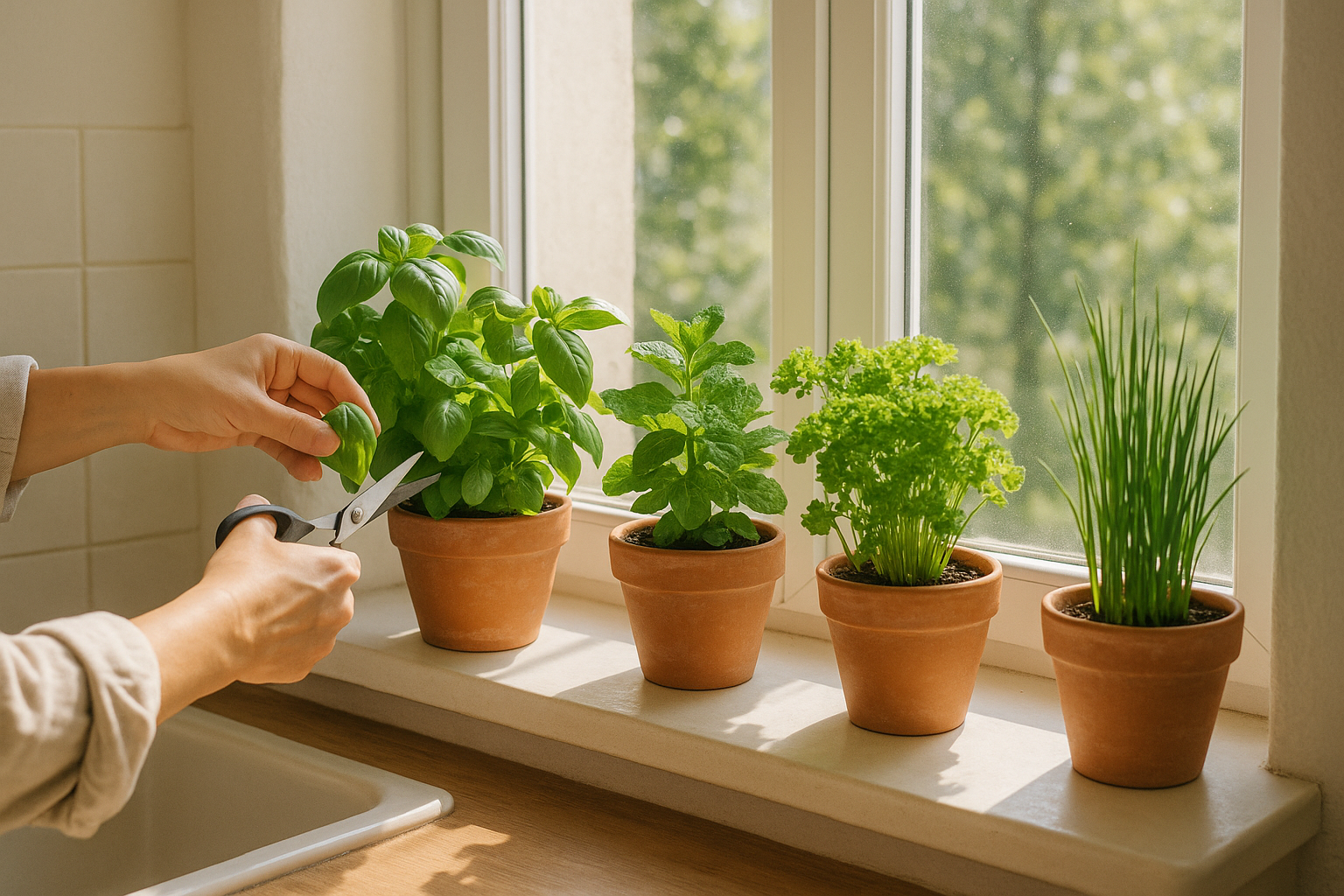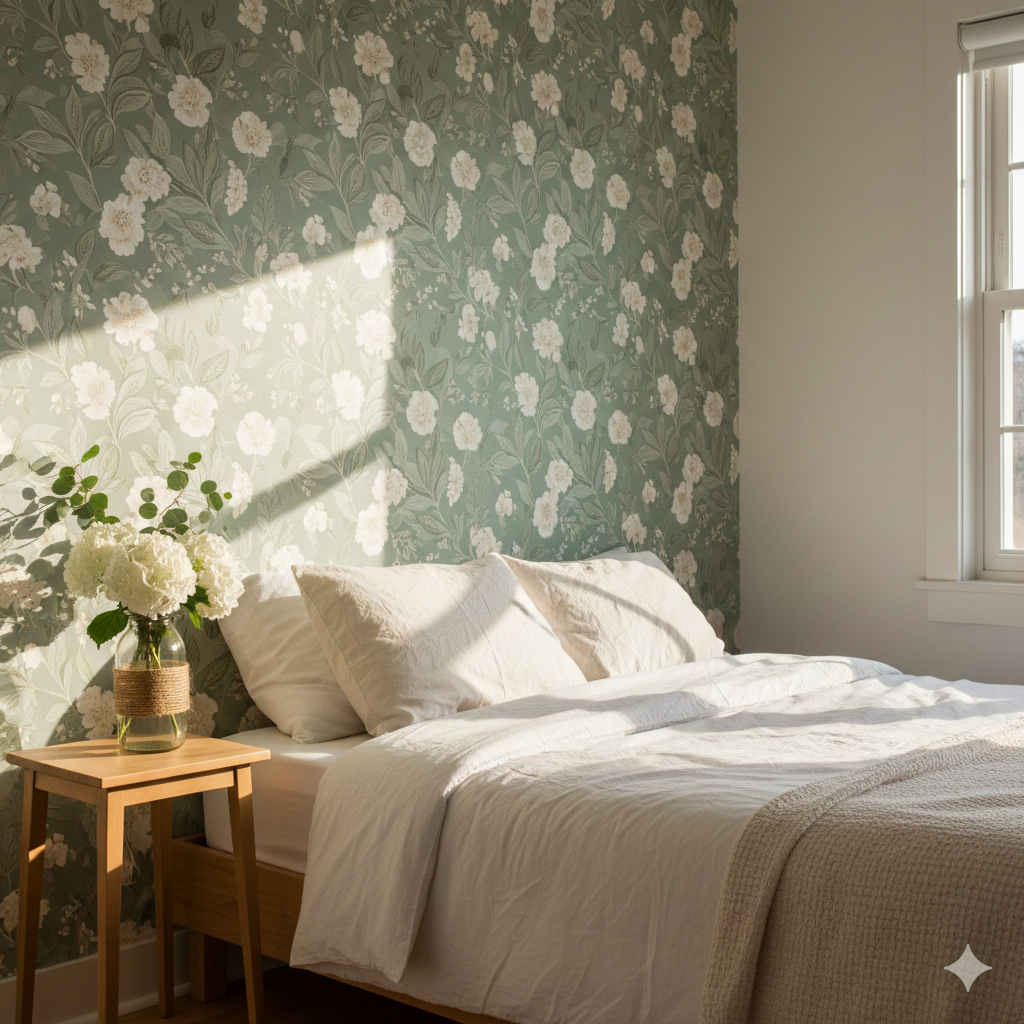Introduction
Imagine snipping fresh basil or mint right from your kitchen counter—even if you live in a city apartment or a home without a yard. Indoor herb gardens are taking root worldwide for their year-round freshness and low-effort enjoyment. This guide shows you exactly how to grow herbs indoors, pick the best varieties for your needs, and avoid common pitfalls—no green thumb required.
Why Indoor Herb Gardens Are Trending
More people are seeking ways to bring nature into small living spaces. Google Trends and TikTok show surging interest in “indoor herb garden kits” and “kitchen herb gardens,” thanks to food lovers, urban dwellers, and anyone eager for fresh flavor and wellness touches at home. The appeal is universal: small-space gardening with practical, tasty rewards.
The Best Herbs to Grow Indoors
Not all herbs thrive inside, but these beauties are proven winners on a bright kitchen windowsill:
Basil
Mint
Parsley
Chives
Thyme
Oregano
Rosemary
Cilantro
You can mix and match herbs based on your favorite cuisines or what grows best in your climate.
What You Need to Start
Essentials:
Small pots or a pre-made countertop herb garden kit
Potting mix designed for indoor plants or herbs
A sunny spot (ideally 5+ hours of indirect light daily) or a grow light
Watering can or spray bottle
Liquid fertilizer (optional for bigger yields)
Budget tip: Repurpose old mugs, clean cans, or glass jars as plant pots—just add drainage holes.
Step-by-Step: Growing Your Indoor Herb Garden
1. Pick Your Plants
Choose easy-starters if you’re new—basil, mint, and chives are forgiving. For robust options, buy starter plants from a garden center.
2. Set Up Your Pots
Fill with soil, leaving an inch from the rim. Plant seeds per packet instructions or tuck in starter plants, gently loosening their roots.
3. Find the Perfect Spot
South or east-facing windows work best. No sun? Place herbs 6–8 inches beneath a LED grow light for 12–14 hours a day.
4. Water the Right Way
Check soil daily. Water when the top inch feels dry—don’t let pots sit in water.
5. Feed and Prune
Feed with diluted fertilizer every 3–4 weeks (optional). Pinch growing tips regularly for bushier plants.
Common Troubleshooting
Problem | Cause | Fix |
Leggy, pale plants | Not enough light | Move closer to window or add light |
Leaves turning yellow | Overwatering or poor drainage | Water less, improve drainage |
Slow growth | Pot too small, poor soil | Repot, use quality compost |
Indoor Herb Kits vs. DIY: What’s Best?
Feature | Indoor Herb Kit | DIY Setup |
Setup | Plug & play | Hands-on |
Price | Higher | Budget-friendly |
Appearance | Sleek, modern | Creative, unique |
Maintenance | Automated watering options | Manual |
Best For | Beginners, busy folks | DIY fans, custom setups |
Maximizing Year-Round Growth
Rotate pots weekly for even growth.
Snip herbs often—trimming encourages new leaves.
Boost humidity by grouping pots together or using a shallow water tray.
Clean windows regularly for more sun.
FAQ
Q1: Which herbs are easiest for beginners? Basil, chives, and mint—hardy and fast-growing indoors.
Q2: Can I grow herbs in low light? Yes—pick mint or parsley and supplement with a basic LED grow light.
Q3: How can I prevent bugs indoors? Avoid overwatering, inspect weekly, and use soapy water on leaves if needed.
Q4: How often should I fertilize? Monthly is usually enough—use half-strength liquid fertilizer.
Q5: Will store-bought cut herbs regrow? Some, like green onions and basil stems, can root in water and transplant to soil.
Q6: Do indoor herbs taste as strong as garden-grown? With good sunlight and soil, most will—always snip leaves before flowering for best flavor.
Ready to Harvest? Here’s Your Next Step
Start your own herb garden today for fresher meals, a greener home, and a fun, healthy hobby anyone can enjoy. Share your progress on social media and inspire friends worldwide to add a little green to their kitchens.



